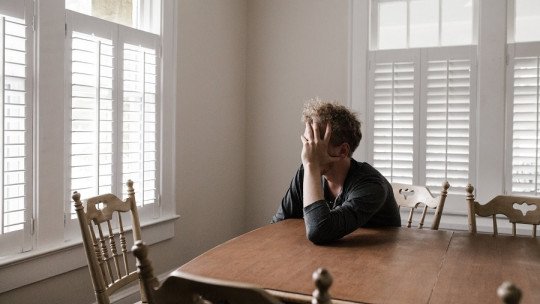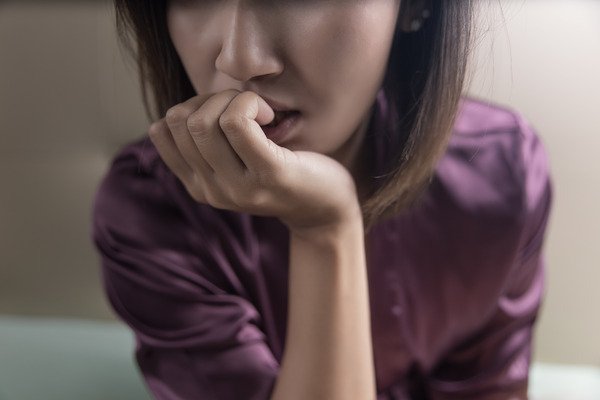
In a world and society that is so automated and advances so quickly around us, it is increasingly difficult to learn to enjoy and occupy our free time. The productivity wheel of the capitalist system in which we live refers to this constant need to be linked to work or, failing that, to the performance of tasks socially considered productive. Therefore, when we do not carry out these activities in our free time, we may feel some type of punishment or social judgment.
Most of the time, this social judgment is transferred to us through guilt. When we feel guilt, we feel in some way that we are breaking with our own values or what is considered socially acceptable. We may come to think that we are not doing the right thing at the right time, feeling the need to change or modulate our behavior.
Sometimes, it is normal to feel guilty and it is justified, when we really do something wrong and that goes against our principles, it is logical to feel guilty. However, when we talk about feeling bad about having free time, the blame comes from the social consideration linked to the need for productivity. Thus, Guilt for having free time is nothing more than a negative consequence of the productivity wheel and the obligation to work and working life.
In this article, we will understand guilt in relation to having free time and present strategies to accept and process that having free time is not something negative but quite the opposite. Embracing and enjoying our time developing activities that make us happy is very important for balance and physical and psychological well-being.
Understanding guilt
As we have been commenting, the feeling of guilt for having free time is a common experience in today’s society so linked to work and productivity. We often find ourselves trapped in a frenetic race to fulfill our work and personal responsibilities, and when we finally have a moment of peace, guilt can ruin the pleasure. Let’s understand in more depth the roots of this guilt.
Why do we feel guilty about free time?
Some of the main reasons why we feel guilty about having free time are:
1. Cultural and social influences
Our culture values productivity and constant work. On many occasions, we are told that time is money and that we should always be busy. This mentality can lead us to feel guilty when we allow ourselves a break.
2. Comparison with other people
We often compare our use of free time with that of others. Yeah we perceive that other people are working harder or being more productive it’s easy for us to feel guilty for taking time for ourselves.
3. High personal expectations
Sometimes we set unrealistic expectations for ourselves about what we should accomplish in a day. If we don’t meet those expectations, we’re likely to feel guilty for not being efficient enough.
Examples of situations that generate guilt
1. Vacation
Although vacations are designed to be times of relaxation and rejuvenation, many people feel guilty about taking time off from work. They fear that their absence will cause problems or that their colleagues will work harder to cover their workload
2. Unexpected days off
When an appointment is canceled or an unexpected free afternoon arises, you may feel a pang of guilt. Instead of enjoying the unexpected time, we often worry that we are not being productive.
3. Time spent on hobbies or personal activities
Whether it’s reading a book, exercising, painting, or any other activity we enjoy, we can feel guilty for spending time on our personal interests when we could be doing “more important” tasks
4. Rest in times of stress
In high-pressure situations, such as tight work deadlines or family problems, free time can seem like a luxury we can’t afford. This can lead to guilt for simply needing a break.
The benefits of free time
Once we understand this guilt that we sometimes experience when having free time, it is very important to give value to these moments of rest that are essential for our physical and emotional well-being. It is vital to understand that free time is not a luxury; it is a necessity. Let’s explore some of the main benefits that free time can bring to our lives:
1. Mental health and well-being
Free time gives us the opportunity to relax and disconnect from daily stress This reduces anxiety and fatigue, improving our mental health and providing a sense of balance in our lives.
2. Creativity and disconnection
Often, our best ideas come when we are relaxed. Free time allows us to explore new activities, which can stimulate creativity and innovation. Additionally, getting adequate rest makes us more productive when we return to work.
3. Social connections
Free time also gives us the opportunity to spend time with friends and family, strengthening our relationships and creating valuable memories. Having moments of rest generates perfect moments to spend quality time with people important to you or even to meet and generate new connections.
4. Work-life balance
Incorporating free time into our routine helps avoid burnout and burnout which in turn makes us more effective in our work responsibilities.
Overcoming guilt
Now that we have understood why we sometimes feel guilty about having free time and we have recognized the many benefits that this time can bring to our lives, it is time to address how to overcome that feeling of guilt and learn to fully enjoy free time. Remember that guilt about having free time is largely limited by social beliefs and expectations around toxic productivity and obligation to work. Here are some effective strategies to understand free time in a healthier way:
1. Recognize the importance of free time
Understand that free time is essential for your physical and mental well-being. It is not a luxury, but a necessity which helps you be healthier and more balanced. Enjoying it prevents you from recharging your energy, enjoying your favorite activities, and surrounding yourself with the people who matter most to you.
2. Set healthy boundaries
Learn to say “no” when necessary and set limits on your time and energy. You can’t do everything and be everywhere, and that’s okay. This is a very important way to get away from these toxic ideas around hyperproductivity and workaholism. Accepting that work does not give you more validity than any other aspect of your life is very important so that you learn to let go of responsibilities that do not concern you.
3. Practice self-compassion
Treat yourself with the same kindness and understanding that you would treat a friend. Don’t judge yourself for taking a break, as we all need moments of relaxation. Explore the reasons why you feel bad about it and learn to forgive yourself and treat yourself well.
4. Challenge irrational beliefs
In line with what was mentioned above, Identify the irrational beliefs that make you feel guilty about free time and work on changing them For example, replace the thought “I should be working all the time” with “it’s worth taking a break.” The truth is that work is not going to take care of you and your emotions in the same way that you or your closest circle can.
5. Plan free time
Schedule free time into your calendar the same way you would for work or responsibilities. This will help you give it equal importance and be able to enjoy all the activities you may have in mind and feel that it is time well spent. However, if you feel like doing nothing, that’s fine too! Identify what you really want to do and accept that any possibility is valid.
The importance of self-care
Self-care is a cornerstone to overcoming the guilt associated with free time. While it is normal to worry about responsibilities and commitments, we should not underestimate the value of taking care of ourselves. Self-care is not selfish; It is essential to maintain optimal physical and mental health
Spending time on activities that nourish us emotionally and physically allows us to recharge. Whether through meditation, exercise, reading, practicing hobbies, or simply quiet downtime, self-care helps us stay balanced and face challenges with a clearer perspective. By making self-care a priority, we not only improve our own lives, but we also become the most effective and compassionate versions of ourselves, which benefits those around us.
In conclusion, overcoming free time guilt involves a change in mindset that allows us to embrace our right to relax and recharge. Self-care plays a vital role in this process, helping us maintain a healthy balance in our lives. So, go ahead, allow yourself to enjoy your free time without regrets and take constant care of yourself to live a fuller and more balanced life.








